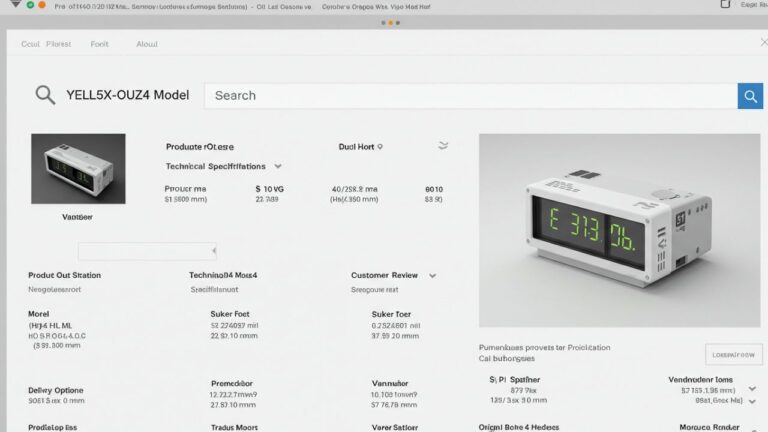
OneFramework.net
Introduction to OneFramework.net
OneFramework.net stands as a cutting-edge platform designed to unify and streamline software development processes across multiple environments. Developers face ongoing challenges related to integration, tool fragmentation, and inefficient workflows. OneFramework.net resolves these issues with an all-in-one solution built for modern programming needs. The platform creates consistency while supporting flexibility, collaboration, and speed.
What Is OneFramework.net?
OneFramework.net serves as a centralized development hub that connects various components of the software development lifecycle. It offers tools for code writing, deployment, testing, and maintenance in a single environment. Developers spend less time switching between tools and more time building quality applications. This comprehensive approach ensures smoother transitions between development phases and better overall productivity.
Why Developers Need Unified Frameworks
Developers often juggle multiple frameworks, libraries, and environments. Switching tools leads to workflow disruptions, mistakes, and lost time. OneFramework.net eliminates those inefficiencies by bringing everything under one platform. Integration becomes seamless, and developers enjoy a cohesive experience from start to finish. That alone makes the case compelling for teams aiming to scale their operations efficiently.
Key Features of OneFramework.net
1. Full-Stack Development Capabilities
OneFramework.net supports both front-end and back-end development using modern languages and libraries. It streamlines the process, helping developers build scalable solutions faster. Whether coding in JavaScript or Python, the platform offers smooth syntax highlighting, version control, and debugging.
2. Built-In CI/CD Pipelines
Automated pipelines are essential for rapid deployment. OneFramework.net includes robust CI/CD tools that integrate directly into your development cycle. Teams can push code changes and deploy updates with minimal manual steps. The automation improves speed, reliability, and consistency in product releases.
3. Real-Time Collaboration Tools
Teamwork lies at the heart of great software development. OneFramework.net offers real-time collaboration features including shared workspaces, code reviews, and chat integration. Developers interact more efficiently, reduce misunderstandings, and resolve issues faster.
4. Advanced API Management
Modern applications rely heavily on APIs. OneFramework.net includes built-in API testing, documentation tools, and gateway management. This allows developers to monitor, test, and secure their APIs within the same environment.
5. Cross-Platform Deployment Support
Deploying across multiple platforms often requires additional tools and configurations. OneFramework.net simplifies this process by offering native cross-platform deployment features. Applications can be launched on web, mobile, or desktop without complex reconfiguration.
Architecture Behind OneFramework.net
Modular Design Philosophy
OneFramework.net uses a modular architecture that allows developers to enable only the features they need. This keeps the interface clean, efficient, and tailored to each project. By loading modules on-demand, the platform reduces resource consumption and enhances performance.
Cloud-Native Infrastructure
The platform operates entirely in the cloud, removing the need for local installations. Developers gain access from anywhere, using any device with a browser. Cloud-native services also offer better scalability, backups, and security.
Integration With Popular DevOps Tools
OneFramework.net integrates seamlessly with DevOps tools like Docker, Kubernetes, Jenkins, and GitHub. These integrations ensure developers don’t have to abandon their favorite tools. Instead, they can enhance them through the unified interface provided.
How OneFramework.net Enhances Developer Productivity
Developers work better when tools fit together. OneFramework.net ensures that by combining coding, deployment, and monitoring in a single place. It saves time and reduces errors caused by using disconnected tools. Projects progress faster, and teams can focus on solving real problems instead of managing infrastructure.
Scalability for Growing Teams
As projects grow, so do the requirements for collaboration, infrastructure, and codebase management. OneFramework.net supports team scalability by offering permissions control, activity logs, and role-based access. Organizations can manage dozens of developers while maintaining code quality and security. This structure ensures larger teams remain productive without getting bogged down in complexity.
Security and Compliance Benefits
Security remains a top concern in modern software development. OneFramework.net provides built-in security features like access control, end-to-end encryption, and activity logging. It also supports industry compliance standards, making it suitable for sectors like healthcare, finance, and education. These features offer peace of mind for stakeholders and developers alike.
Learning Curve and Onboarding Experience
A platform’s success often depends on how quickly users adapt to it. OneFramework.net reduces the learning curve with its intuitive interface, guided tutorials, and active community. New developers can get up to speed quickly, while experienced users discover features through in-depth documentation and video walkthroughs. This onboarding system reduces friction and encourages adoption.
Pricing and Subscription Models
OneFramework.net offers flexible pricing options to cater to solo developers, startups, and enterprise clients. Plans include free access with limited features, monthly subscriptions, and custom enterprise solutions. This range allows users to choose a plan that fits their budget without compromising on performance or support.
Case Studies and Real-World Applications
FinTech Use Case
A financial startup used OneFramework.net to build a scalable mobile banking app. They reduced development time by 40% and improved deployment speed significantly.
Education Platform
An e-learning company integrated OneFramework.net into their workflow. They simplified API management and reduced tool switching across departments.
Healthcare Management Tool
A healthcare provider built a secure patient portal with OneFramework.net, ensuring HIPAA compliance and speeding up feature delivery cycles.
Comparing OneFramework.net With Alternatives
Versus Traditional IDEs
Traditional IDEs offer excellent code editing features but lack integration. OneFramework.net bridges that gap by adding collaboration and deployment tools.
Versus Custom DevOps Pipelines
Custom pipelines are powerful but time-consuming to maintain. OneFramework.net automates much of the DevOps workload while keeping teams agile.
Versus Microservice-Oriented Platforms
While microservice platforms require deep technical expertise, OneFramework.net abstracts the complexity through easy-to-use modules and templates.
Roadmap and Future Updates
The development team behind OneFramework.net consistently releases updates to address user feedback and introduce new features. Upcoming updates will include AI-assisted coding, enhanced performance analytics, and blockchain integration. This roadmap signals the team’s long-term commitment to innovation and user experience.
Community and Support Ecosystem
OneFramework.net maintains an active community where users share tips, tutorials, and code snippets. Official forums, Git repositories, and Discord channels provide space for collaboration and troubleshooting. Additionally, users can access email support, live chat, and one-on-one consultation as part of the subscription service.
Developer Testimonials
“OneFramework.net transformed our workflow. We now complete projects weeks ahead of schedule.” — Senior Developer, SaaS Company
“Everything from coding to deployment lives in one place. That simplicity has boosted our team’s productivity tenfold.” — DevOps Lead, Tech Startup
Tips for Getting Started With OneFramework.net
-
Start with a small project to explore all available modules.
-
Use built-in tutorials to understand each feature before scaling.
-
Invite teammates early to leverage collaboration tools.
-
Sync with your existing repositories to maintain version history.
-
Explore CI/CD settings to automate deployment from day one.
Common Mistakes To Avoid
-
Skipping the initial setup wizard can cause configuration issues later.
-
Overloading the platform with unnecessary modules affects performance.
-
Failing to use role-based permissions may lead to accidental data exposure.
Final Thoughts on OneFramework.net
OneFramework.net stands out in the crowded development tools market by offering a unified and powerful experience. It doesn’t just simplify coding — it enhances every stage of the software lifecycle. From development and deployment to testing and monitoring, OneFramework brings it all together in a sleek, responsive environment. Developers can spend less time managing tools and more time building the future.





